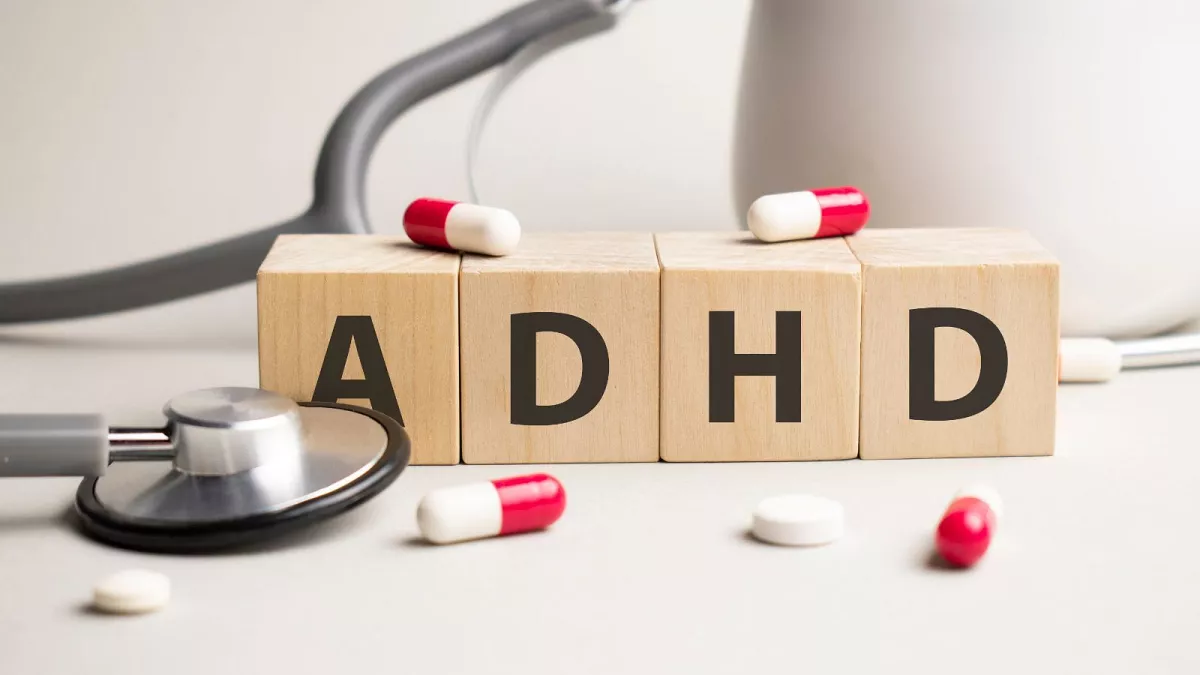Millions of people worldwide suffer from Attention-Deficit/Hyperactivity Disorder (ADHD), a neurodevelopmental disorder. It is typified by a recurring pattern of hyperactivity-impulsivity and/or inattention that impairs development or functioning. Improved quality of life and improved management of ADHD can be achieved by individuals, families, and professionals via an understanding of the symptoms and how they affect day-to-day functioning.
Describe ADHD.
ADHD is a complicated condition that presents differently in each person. Although symptoms usually appear in childhood, they can also last into adolescence and maturity. The two main groups of symptoms associated with ADHD are hyperactivity-impulsivity and inattention. ADHD is a complex and multidimensional disorder because of the wide range in the intensity and presentation of these symptoms.
Typical ADHD Symptoms
Lack of focus
Symptoms of ADHD in adult, which has a major negative influence on a person’s capacity to concentrate and carry out tasks. Important signs and symptoms consist of:
Having Trouble Focusing:
People with ADHD frequently find it difficult to stay focused on jobs or activities, particularly when they are repetitive or call for a lot of mental work. This may result in tasks that are not completed, deadlines that are missed, and trouble completing assignments.
Careless Errors:
Due to inattention, people with ADHD may commit careless errors frequently. These errors frequently result from people forgetting important details or not proofreading their work, which can affect how well they perform in social, professional, and academic contexts.
Difficulty Organizing Tasks:
People with ADHD may find organization to be extremely difficult. Their inability to properly prioritize duties, manage time, and keep track of their belongings can result in missed appointments, misplaced items, and a disorganized workspace.
Avoiding Tasks Needing Extended Mental Effort:
Studying and finishing intricate projects are two examples of tasks that might be extremely difficult. People suffering from ADHD may put off or avoid these chores, which can result in more stress and lower output.
Forgetting During Daily Tasks:
Frequently forgetting things is a typical symptom. This can involve neglecting to finish tasks, pick up the phone, or honor agreements, all of which can cause tension in relationships and interfere with day-to-day activities.
Excessive-Impulsive Behavior
Another key component of ADHD is hyperactivity and impulsivity, which can have an impact on many areas of life. Among the symptoms are:
Restlessness:
People who have ADHD may feel as though they must move constantly. Excessive chatting, fidgeting, or the difficulty to sit quietly can all be signs of restlessness. Adults experiencing this could find it difficult to remain sat during meetings or experience an innate need to be active.
Impulsivity:
Impulsivity frequently results in snap decisions that are made without thinking through the long-term effects. Financial difficulties, dangerous behavior, or strained relationships may arise from this. Interrupting people or speaking out of turn during conversations are examples of impulsive behavior.
Having Trouble Waiting Turns:
People with ADHD may find it difficult to wait their turn in social or group situations, which can cause disruptions or make group activities challenging. This conduct may have an impact on social relationships and cause miscommunications with others.
Talking Too Much:
It’s normal to have an impulse inclination to talk too much or to cut others off in conversations. This can cause social relationships to break down and make it difficult for people to have meaningful, reciprocal conversations.
The Effects of ADHD on Day-to-Day Living
Academic and Career Difficulties
ADHD symptoms can pose serious problems in both work and school environments. Organizational and focus issues can cause students to perform poorly in class, receive lower grades, and become frustrated. People with ADHD may have trouble managing their workload, keeping up with deadlines, and remaining productive at work. Both job happiness and professional advancement may be impacted by these challenges.
Relationship Stress
Relationship problems can also be caused by ADHD symptoms. Misunderstandings and disputes with friends, family, and coworkers can result from impulsivity and forgetfulness. Relationship tension might result from a persistent need for excitement and trouble focusing, which can make people feel irritated or resentful of you.
Mental Health
Emotional health may suffer from the constant battle to control ADHD symptoms. Because of these difficulties, people could suffer from sadness, anxiety, or low self-esteem. Feeling inadequate or misinterpreted all the time might damage one’s emotional well-being and lead to a bad self-perception.
Coping Mechanisms and Available Therapies
Behavioral Techniques
Putting behavioral methods into practice can help control ADHD symptoms and enhance day-to-day functioning. These tactics could be establishing regimented practices, making use of planning or reminder tools, and segmenting work into smaller, more doable segments. Moreover, behavioral management can be aided by providing clear expectations and providing positive reinforcement.
Expert Assistance
Consulting mental health specialists, including psychologists or psychiatrists, might yield helpful advice and treatment alternatives. Individuals with ADHD can benefit from behavioral therapy, cognitive-behavioral therapy (CBT), and other therapeutic modalities in order to address emotional difficulties and build coping mechanisms.
Drugs
Medication is frequently an element of an all-encompassing ADHD treatment program. Methylphenidate and amphetamines are two examples of stimulant drugs that are frequently given to treat symptoms. Depending on each patient’s demands and how they respond to treatment, non-stimulant drugs might also be taken into consideration.
In summary
To properly manage ADHD and enhance quality of life, it is imperative to comprehend the condition and its symptoms. Through the identification of symptoms of inattention and hyperactivity-impulsivity, people and the networks that support them can create plans to deal with problems and improve day-to-day functioning. People with ADHD can live happy, productive lives, overcome challenges, and realize their full potential with the right care and assistance.
